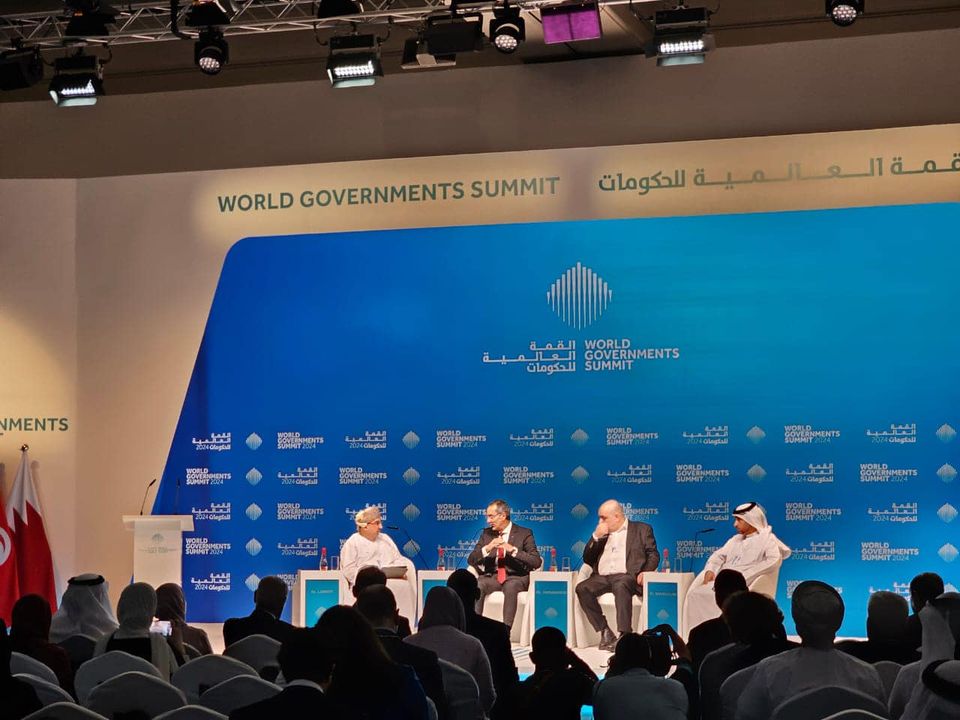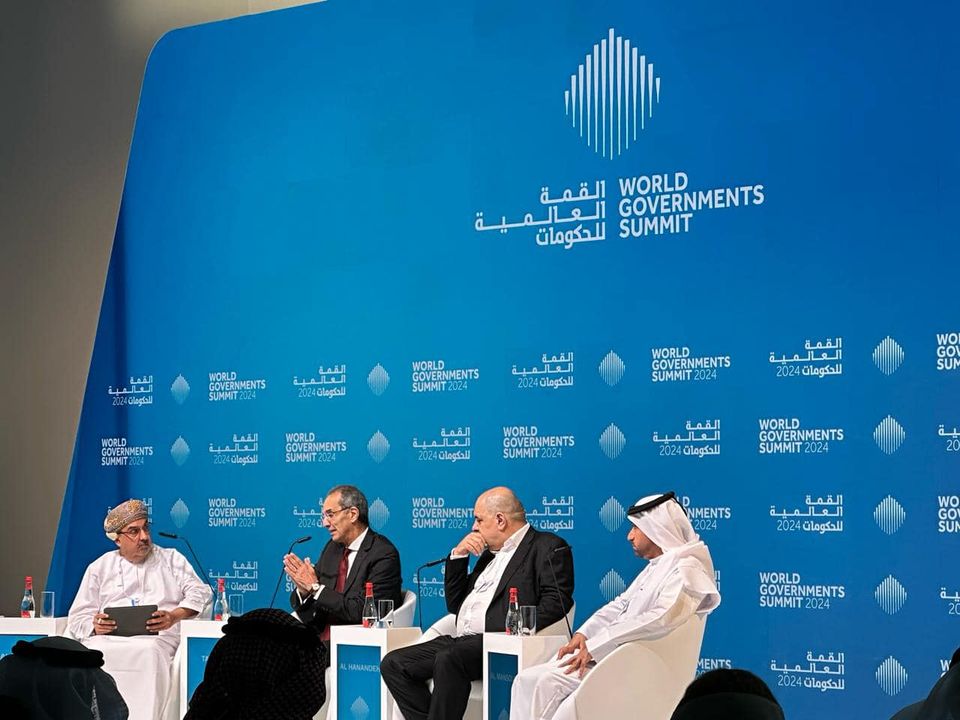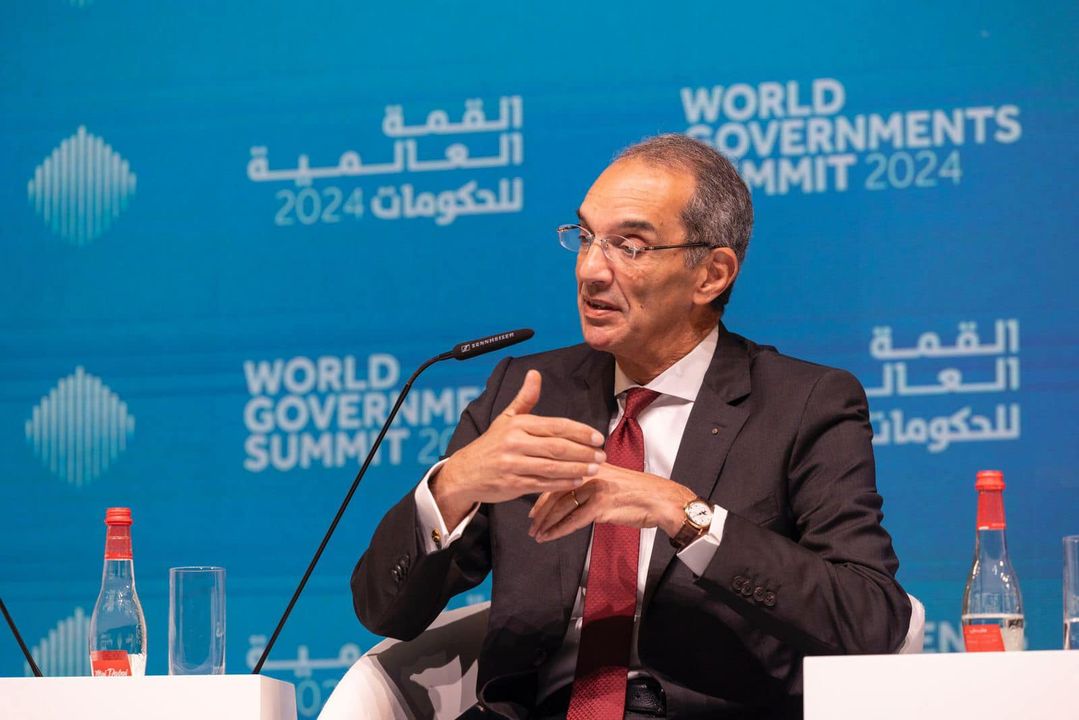The Minister of Communications and Information Technology Amr Talaat has participated in a session titled “Brutally Honest: Are Arab Governments Anywhere Near AI?” as part of the third Arab Public Administration Forum during the World Government Summit (WGS) 2024 in Dubai, UAE.
The Forum is organized by the Arab Administrative Development Organization (ARADO) of the League of Arab States (LAS), under the theme “Shaping the future of Arab government administration.” It was inaugurated today by LAS Secretary-General Ahmed Aboul Gheit.
The session brought together heads of government, ministers, senior officials, decision-makers, thought leaders, and experts from Arab countries to discuss the role of AI in developing government administration. The Minister of Digital Economy and Entrepreneurship in Jordan Ahmad Al Hanandeh, and the Director General of Digital Dubai Hamad AlMansoori joined the session. It was moderated by the President of the Royal Academy of Management (RAM) Ali Al Lawati.
During the session, the ICT Minister underlined the disparity in AI readiness among Arab governments, stressing the importance of monitoring advancements in the Arab region in this regard. He explained that the strategy for enhancing the AI readiness of Arab governments rests on three main pillars. The first pillar focuses on human development and skill acquisition, whether by qualifying government employees or increasing public awareness of AI and its utilization to derive benefits from such technologies and take necessary actions to address their risks.
Talaat specified that the second pillar involves establishing an enabling environment for innovation, creative thinking, and excellence in AI, given its dynamic nature as an ever-evolving field. He cited the emergence of generative AI last year and forecasted further advancements in the near future, underscoring the need to develop AI-powered systems accordingly. The third pillar focuses on creating solutions and systems that utilize such mechanisms to benefit communities economically and socially, Talaat added.
Such strategy relies on two enablers, said the ICT Minister. The first is the legislative and regulatory framework to establish a governed system within communities. He stressed that since data is fundamental to AI, it should be made accessible while establishing governance foundations in a way that does not hinder data exchange. The second enabler is to establish a robust digital infrastructure that supports all these elements and enables the automation of operations across diverse industries.
Talaat emphasized that while AI offers tremendous opportunities for all sectors, it is crucial to address its challenges, including maintaining the neutrality of data and perspectives upon which AI systems are developed, especially in the case of generative AI. He underscored the importance of ensuring that these data and perspectives align with the values, ethics, and visions of Arab societies. Talaat also highlighted the significance of AI systems incorporating diverse ideas to meet users’ expectations.
Moreover, the ICT Minister remarked that AI is a double-edged tool, elaborating on its first edge, primarily its role in bridging the skill gap by empowering individuals to make cognitive leaps forward and save time in completing tasks. The second edge concerns reliability, which necessitates ensuring the neutrality of data and information within AI systems, in a manner that benefits Arab societies across all applications.
It is worth noting that the Arab Public Administration Forum is aimed at developing government administration and services to serve Arab societies and strengthening the readiness of Arab governments for the future.
https://shorturl.at/ipACO
WorldGovSummit WGS24
وزارة الاتصالات وتكنولوجيا المعلومات-مصر



